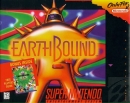Reasonable said:
The market is fragmented in terms of what different gamers want/expect and the ability of the current consoles to support them. The upshot for game developers is that it complicates their life horribly and increases the risk of a title failling. The result (sometimes) is confusion and anger, which gets directed back to the consumer (sometimes). Not pretty, but there you go.
Clearly this doesn't apply across the board to every developer, but it's there. The Wii is selling great but it has failed to emulate the PS2 in one crucial way - it is not the consistent, massively dominant home to the majority of console gamers and demographics. It's success is also based on a distruptive approach - motion controls - which has thrown many developers for a spin as well. I really like my Wii, but I never, from day one, figured it would or could be be my single console or gaming device.
The 360 (and Xbox before it) has brought in the demographic around high end graphics and online - in a sense I'd argue MS themselves brought disruption to the console market and attracted a new demographic. The Wii simply doesn't support that well. The 360 also raised the development cost for big titles and intriduced more of a risk/reward environment for developers and raised the stakes for failure.
The PS3 is very similar to the 360 as well as also introducing it's own piece of disruption, or perhaps evolution would be the better word, a new storage format.
The result is exactly the fragmented market we see today.
A developer has to ask themselves: Do I support Wii and motion controls but then exclude PS3/360? Do I produce a high end expensive title for PS3/360 and exclude the Wii? Do I make a game that fills a BR disk and exclude 360/Wii or use multiple disks on 360? Do I make a cheaper game and put it on Wii, PSN/Live? Am I going to target motion controls or not? Do I want to deliver amazing online or a single player or offline coop experience?
Too many conflicting choices and no single platform to aim the majority of them at.
I suspect many developers will actually be glad when Natal/Arc hit as they will very likely even the playing field a bit, allowing a developer to produce a lower cost, fun title using motion controls and stick it on every console - a first for this generation.
|
One thing I forgot to mention is the clearly different views some (a majority?) of third party developers have of the three consoles based on their manufacutrers, which also has a big impact on their decisions:
Nintendo
There is clearly a level of fear here that Nintendo 'understands' the Wii in terms of motion controls and titles as well has having the dominant franchises for the system - Mario, Zelda, etc. This, coupled with what has been percieved as weaker sales of certain titles has got a lot of third party developers suspicous of the platform and seems to be giving rise to a perception that your title will sell less and that you're doomed to fail competing with Nintendo themselves.
Clearly, the strong success of the core franchises plus Nintendo's success with titles like Wii Fit and Wii Sports, etc. does nothing to dispel this fear.
Also, while the Wii does sell a lot of third party SW there is no doubt that enough titles seem to perform weaker than expected, particularly in certain genres, to re-enforce this. In the end Wii owners need to buy enough copies of certain titles to ensure they are seen as popular on the system, and this hasn't happened in certain cases. Rightly or wrongly I feel some developers ignore or forget the sales/cost ratio and compare sales on Nintendo to sales of similar titles on 360/PS3 without taking into account the lower development costs - i.e. you could make the same return and profit on Wii selling less as your outlay is less.
I suspect many third party developers do wish Nintendo weren't as dominant with SW on their own platform as is the case.
This of course is affected by region, too. With I think western developers much more cautious of the platform than local ones, although even there I feel a lot of local support is actually focused more on handhelds (Nintendo's own DS range plus the PSP).
MS
In many ways, it's easy to see the lure of the 360 for many third party developers. MS has by far the weakest first party capability itself, and Halo aside needs third party titles in a huge way on its system. MS clearly puts a lot of effort into wooing developers as a result of this, which only re-enforces this position. The 360 sells a lot of SW particularly in the West and particularly in the English speaking territories - something that makes it very attractive to a lot of Western third party developers. It also has a good SDK and, for Western developers turning from PC to consoles makes for a very easy transition target. To put it simply, if you want to make a title, particularly a Western orientated FPS or action title, the 360/PC makes a very appealing combination.
The main downside of the 360 is cost of development and competition in the core genres. Producing a good HD game takes money and if you're going to produce one in the popular genres on 360, particularly FPS/TPS with online MP, then it better be good and original or it could fail vs the plentiful competition.
The other downside I feel is that some developers are uncertain about the popularity of broader genres on 360 vs the core action/online titles.
360 is also attractive for Live, which can provide a channel for lower cost games to reach a more niche audience.
Finally, the 360 has been (perhaps still is) attractive to Japanese developers wanting a slice of the currently popular West. Although clearly results for more Japanese centric titles on the platform may give pause to that being exclusive in nature.
Sony
Sony presently lies between Nintendo and MS I think for a lot of third party developers.
Sony has a strong first party development capability, and does own some key franchises in the same manner as Nintendo. But historically it's a platform that's been host to massive third party success, and there is no doubt that many third parties are comfortable in principle with supporting the PS3 as a platform, particularly since the platform 'found its feet' and started selling most third party titles in comparable ratio to the 360 (WW that is, clearly it varies by region).
Where it differs from the 360 is that it has (still?) historically been tougher to develop for, and it's harder to produce a good 360/PS3 or 360/PS3/PC title than a good 360/PC title. For developers moving from PC to console support this has been a particular hurdle, and it's no surprise to me that initially the 360 got all the love and even now still has sole console focus from developers like Valve.
However, I think for most developers that particular hump is fading, and like the 360 the PS3 is seen as a fairly safe bet for solid sales if you produce a good title. It's weakness for developers is that in US/UK core titles sell less than 360 although this has evened out in ratio. On the other hand there is a perception, I believe, that a broader spectrum of genres can sell well on the PS3, making it seem more appealing I believe to developers looking at titles outside the core 360 genres or to spread the risk of such titles across both platforms.
PS3 also has PSN, which is an attractive channel for the right titles.
Finally, it appeals to Western developers as a safe bet to extend sales on top of 360 while it clearly offers a better chance of penetration in Japan than 360 (although this is a lesser priority I think for a lot of Western developers). Clearly it is now a fairly safe bet for Japanese developers as titles now sell well enough locally plus the PS3 offers access to the Western market now in a similar manner to 360.
In the end, I believe currently the PS3/360 platform just seems more appealing to a lot of third party developers from a potential sales/competition perspective, with the main downside being cost of development.
The Wii is attractive for potential sales and cost of development, but right or wrong a lot of developers see it as being far riskier from a competition (with Nintendo) and breadth of genre perspective and unless that changes it does seem likely the Wii will never see the dominance in third party support the PS2 did before it.




































































